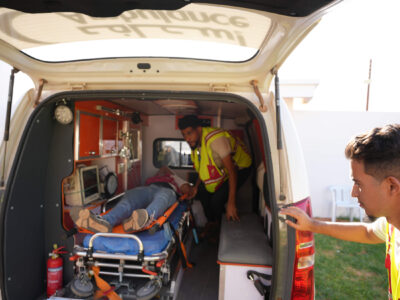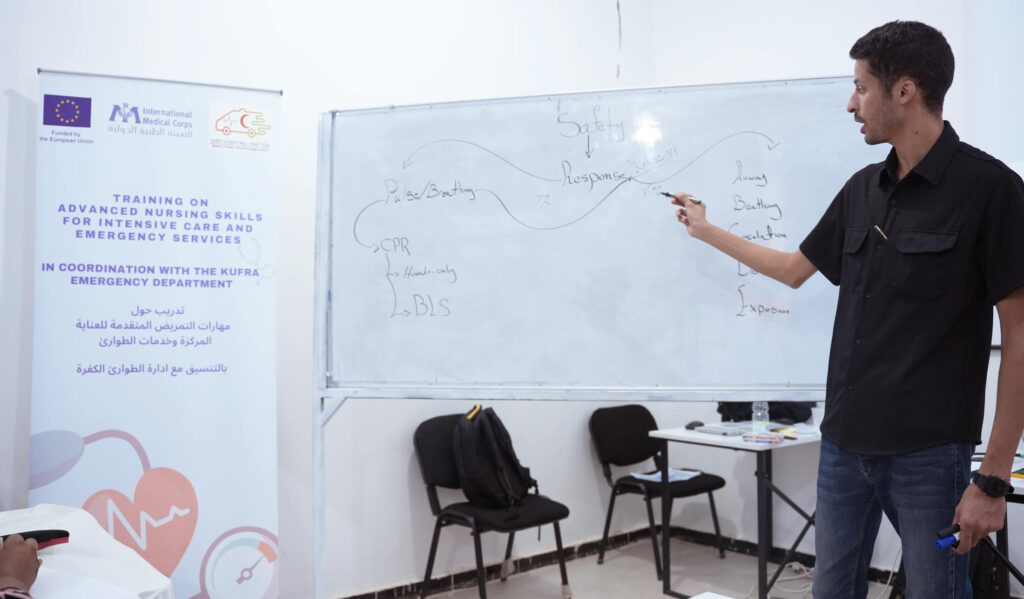Over the past 15 years, Libya has endured revolution, armed conflict and devastating natural disasters—leaving its health system strained and its emergency responders under immense pressure. In October, International Medical Corps delivered lifesaving training to national health staff in Kufra—including doctors, nurses and ambulance workers—equipping them with the critical skills needed to respond to emergencies and save lives. This training is part of International Medical Corps’ ongoing response to the Sudanese refugee crisis in Libya.
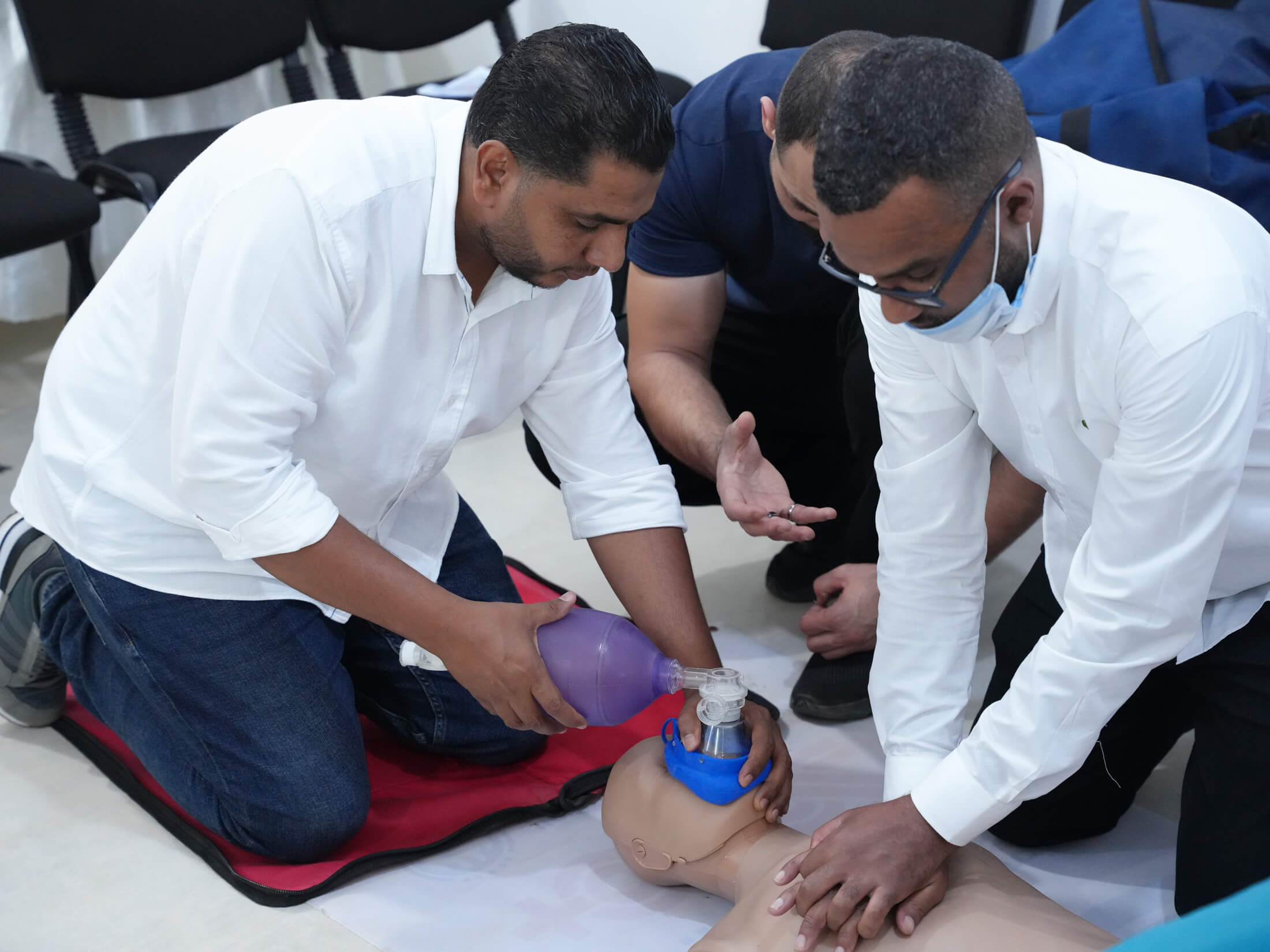
“By equipping doctors with critical skills in managing cardiac arrest, we’re strengthening the front line of emergency care,” explains Dr. Ahmed Ramadan Shafter, Medical Coordinator for International Medical Corps in Libya. “Every doctor trained is now better prepared to respond swiftly and effectively in life-threatening situations—and that readiness can make all the difference.”
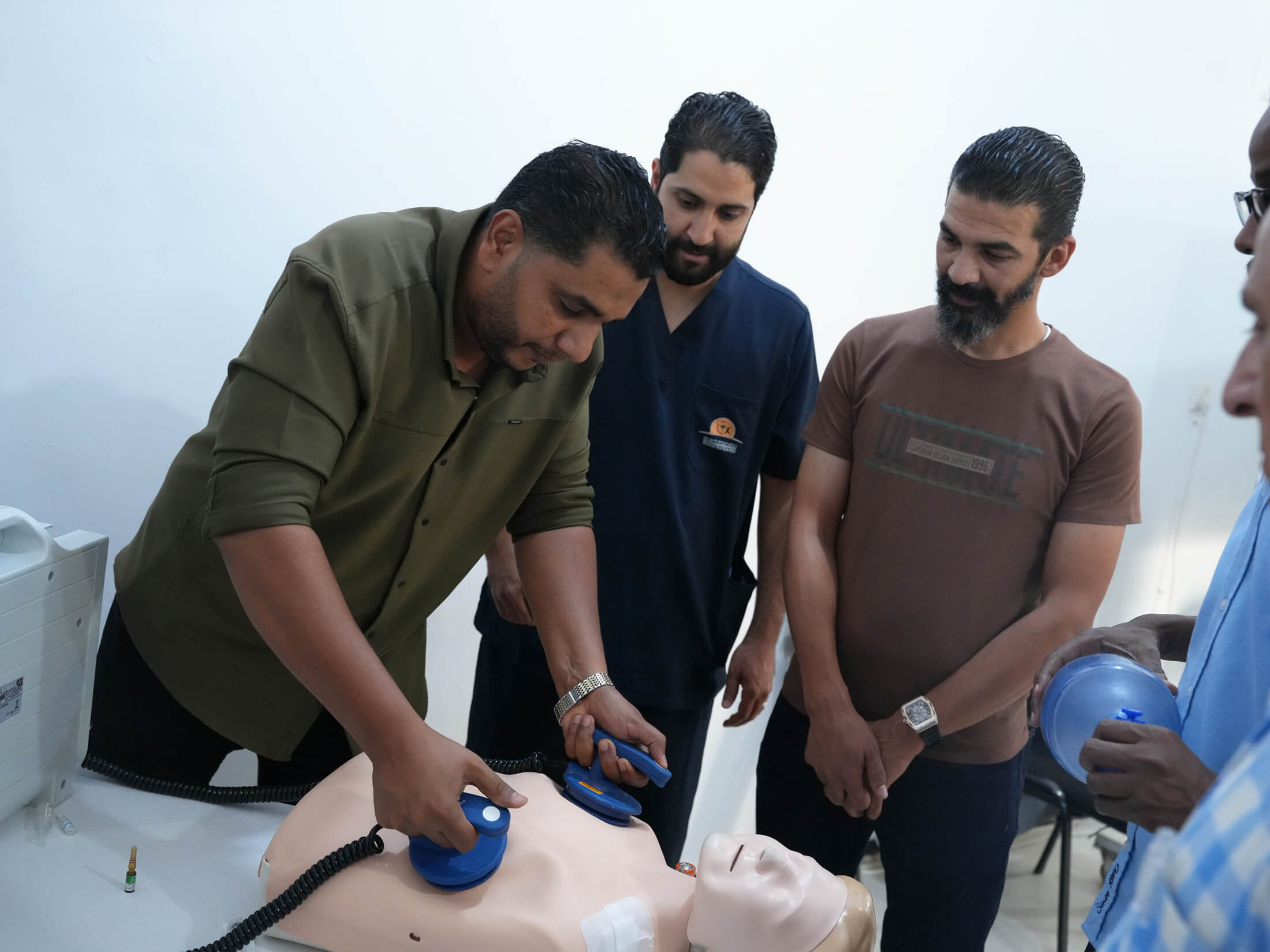
Some of the training sessions focused on enhancing doctors’ capacity to manage cardiac arrest during emergencies, including cardiopulmonary resuscitation (CPR), how to use automated external defibrillators (AEDs), emergency drug administration and team leadership. The training reached 38 doctors, with separate sessions held for men and women.



Other training sessions were “designed to strengthen the critical role nurses play in emergency response,” explains Dr. Ibrahim Shadi, trainer for the Libyan Emergency Medicine Association (LEMA). “Seeing their engagement and growth throughout the sessions was a powerful reminder of how essential well-trained nurses are to saving lives in crisis situations.”
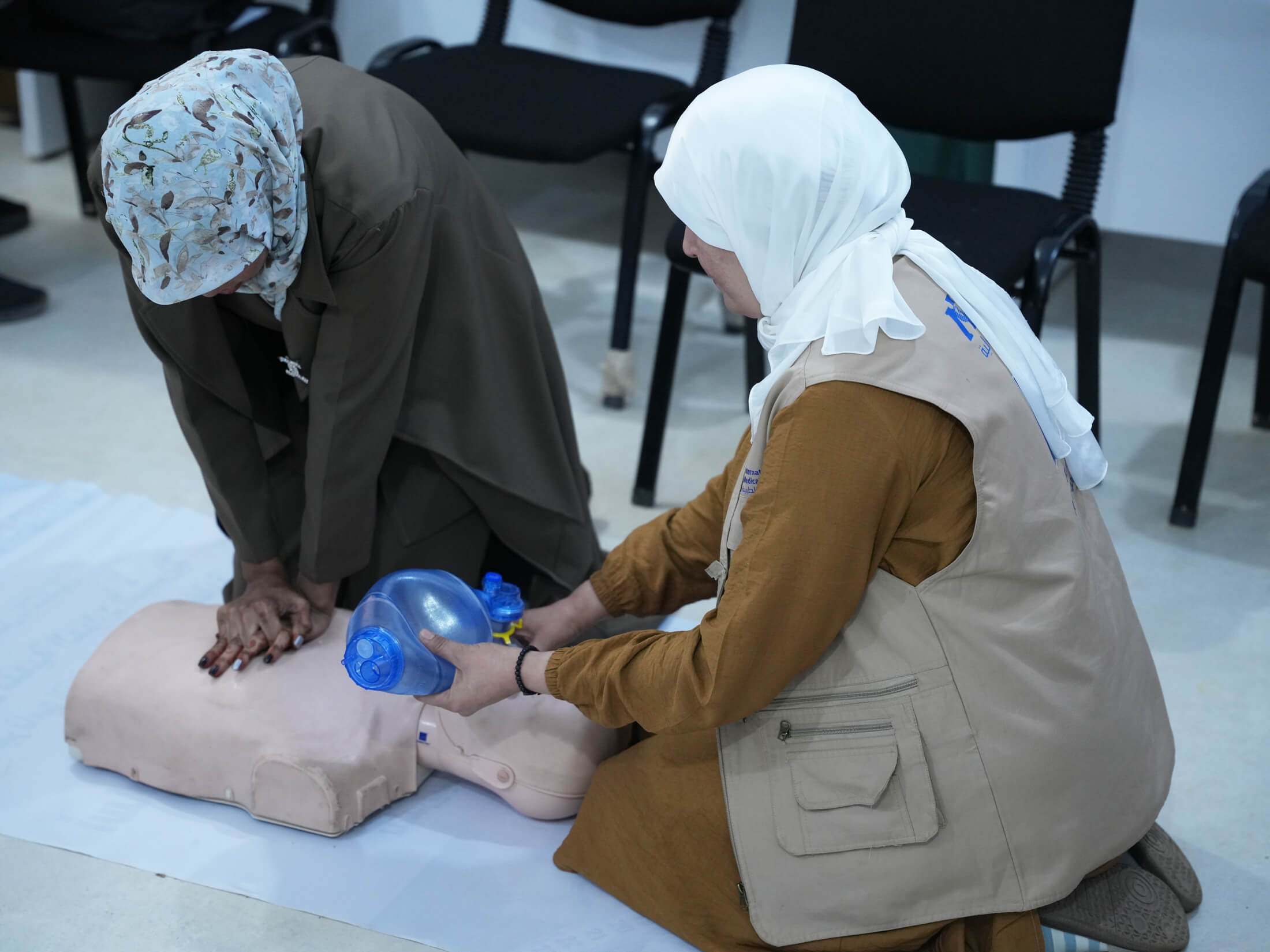
The training, which focused on triage, IV access, vital signs, trauma care and medication administration, reached 24 nurses.
“This training gave me the confidence to act quickly and lead effectively during emergencies,” says Masouda Bakosh, a nurse who completed the training. “I feel more prepared than ever to save lives when every moment matters.”


Another training session, mass-casualty training, “equips local responders with the skills, coordination and confidence needed to act decisively when every second counts,” explains Ibrahim Belhasan, Head of the Kufra Ambulance Department. “As a trainer, I’ve seen firsthand how these drills transform uncertainty into readiness, building a foundation of resilience that can save lives in the face of crisis.”
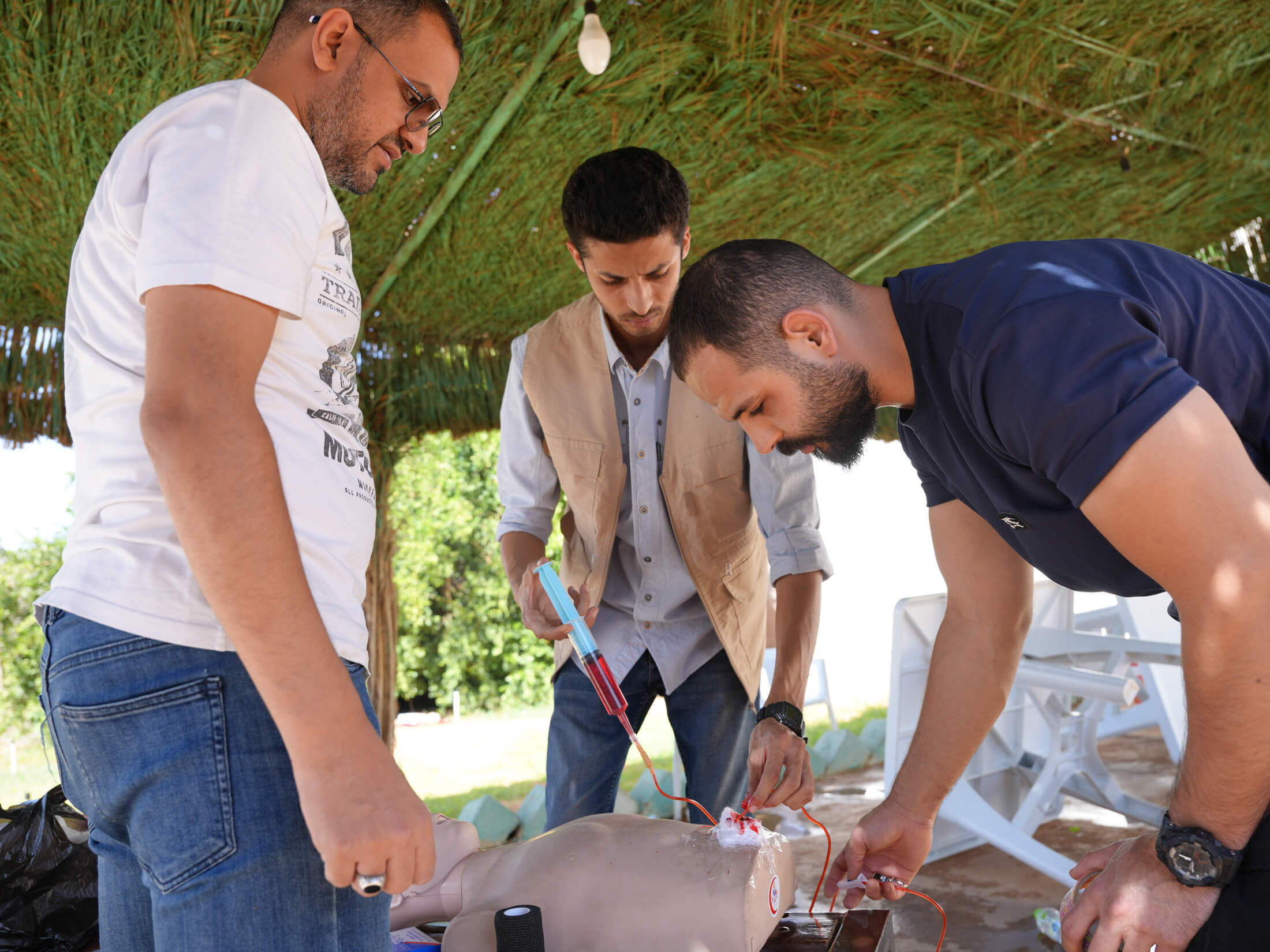
Held at the Acadimos Training Center in Kufra, the training session focused on how to conduct disaster triage, incident command and field coordination during a mass-casualty event. The trainers and International Medical Corps staff members set up the environment as if an event had happened—turning chairs and tables over, covering dummies with fake blood and assigning roles to trainees during the role-playing exercises.


Through these training initiatives, International Medical Corps—with generous support from the European Union and in partnership with the Ministry of Health’s Emergency Department in Kufra and LEMA—is helping to build a health system better equipped to respond to today’s crises and prepared for whatever comes next. The dedication of Libya’s doctors, nurses and ambulance workers is a powerful reminder that even in the most challenging circumstances, hope and healing are possible. Learn more about our work in Libya.
